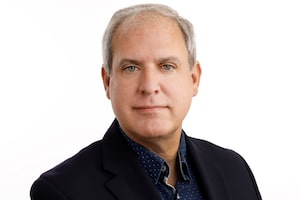
Liberal Leader Justin Trudeau greets supporters during a walk to his campaign bus in Ottawa on Aug. 15.DAVE CHAN/AFP/Getty Images
There were two big questions Justin Trudeau was going to have to answer after he visited Governor-General Mary Simon to trigger an election campaign: why and why now. His answers were more about the moment.
The “why now” query was always going to be unavoidable. Opponents had for weeks been accusing him of selfishly planning to trigger a campaign when a fourth wave of COVID-19 was starting. Kabul was falling to the Taliban on the same day. Reporters were going to ask on Sunday.
But you’d think the “why” question – what is this election for? – is the one Mr. Trudeau has to answer before voters go to polls on Sept. 20. What kind of future are his Liberals proposing, and what does it mean for them?
Most of Mr. Trudeau’s points were about the why-now, about the short term, and on closing out the pandemic. And about vaccine restrictions and COVID culture.
Party challenges and strategies for the 2021 federal election
Federal election 2021: Latest updates and essential reading ahead of Sept. 20’s vote
He started with something Canadians can readily understand: That the last 17 months have been “something we have never experienced.” He said we’re all wondering what the next 17 months, and 17 years, will be like. He called this a pivotal moment – perhaps the most pivotal moment since the Second World War – but then he didn’t actually talk a lot about the next 17 years.
Mr. Trudeau did argue that the pandemic continues and Canadians have to choose the direction. He said his government is requiring federal public servants, and anyone who travels on a plane or train, to be vaccinated, “and not everyone agrees.”
That was a poke at Erin O’Toole’s Conservatives, who are opposed to vaccine requirements, or at least, aren’t clear on where they stand. It was an attempt to turn the question about an election campaign in a fourth wave into a choice about COVID culture: Do you want the folks who are for vaccination requirements, or those against? At one point, Mr. Trudeau noted protesters are calling COVID-19 measures tyrannical, and argued the answer to that accusation is a democratic election.
As an answer to the why-now question, that’s likely to satisfy many of those willing to be satisfied. We should all know the big why-now reason is that the Liberals see an opportunity for a majority government. But we should also know opposition parties bring down minority governments if the time is right for them. When Mr. Trudeau asks the public about vaccine mandates, it is at least a timely question.
Still, the incumbent – one whose government has embarked on one of the biggest post-war spending programs – launched an election campaign saying surprisingly little about the next four years.
Mr. Trudeau did tick off his big promises, such as affordable child care, better jobs, and climate change “ambition.” But he didn’t conjure a focused image of a Liberal future, one or five years from now.
That’s a potential pitfall for the Liberals. Political history is littered with candidates who faltered when they didn’t have a strong answer for why they were running for office, or for re-election. Stephen Harper called a snap election in 2008, but his professorial explanations of why didn’t galvanize voters, and he got another minority.
But clearly, Mr. Trudeau’s priority was to win the day – the first news cycle of the campaign, the one focused on the why-now. The Liberals figured vaccine requirements would make a good political wedge. And it worked.
Mr. O’Toole actually did put a focus on the longer-term, asserting that the election question is, “Who do you trust to secure your economic future?”
But then he stumbled on the immediate questions. He dodged when asked if all Conservative candidates are vaccinated, or if unvaccinated Canadians should be barred from flights and trains. Chunks of the Conservative Leader’s base don’t like restrictions on the unvaccinated, but polls suggest most Canadians do. And people will talk about it.
It’s no wonder then, that the Liberal Leader seized on that. Mr. Trudeau answered the why-now question by emphasizing the choices needed for the next months, But he didn’t offer a strong, clear answer to that bigger, longer-term ‘why’ question – what this election is all about, and what it means for Canadians’ future. If he has one, it’ll have to wait for another day.
Know what is happening in the halls of power with the day’s top political headlines and commentary as selected by Globe editors (subscribers only). Sign up today.
 Campbell Clark
Campbell Clark